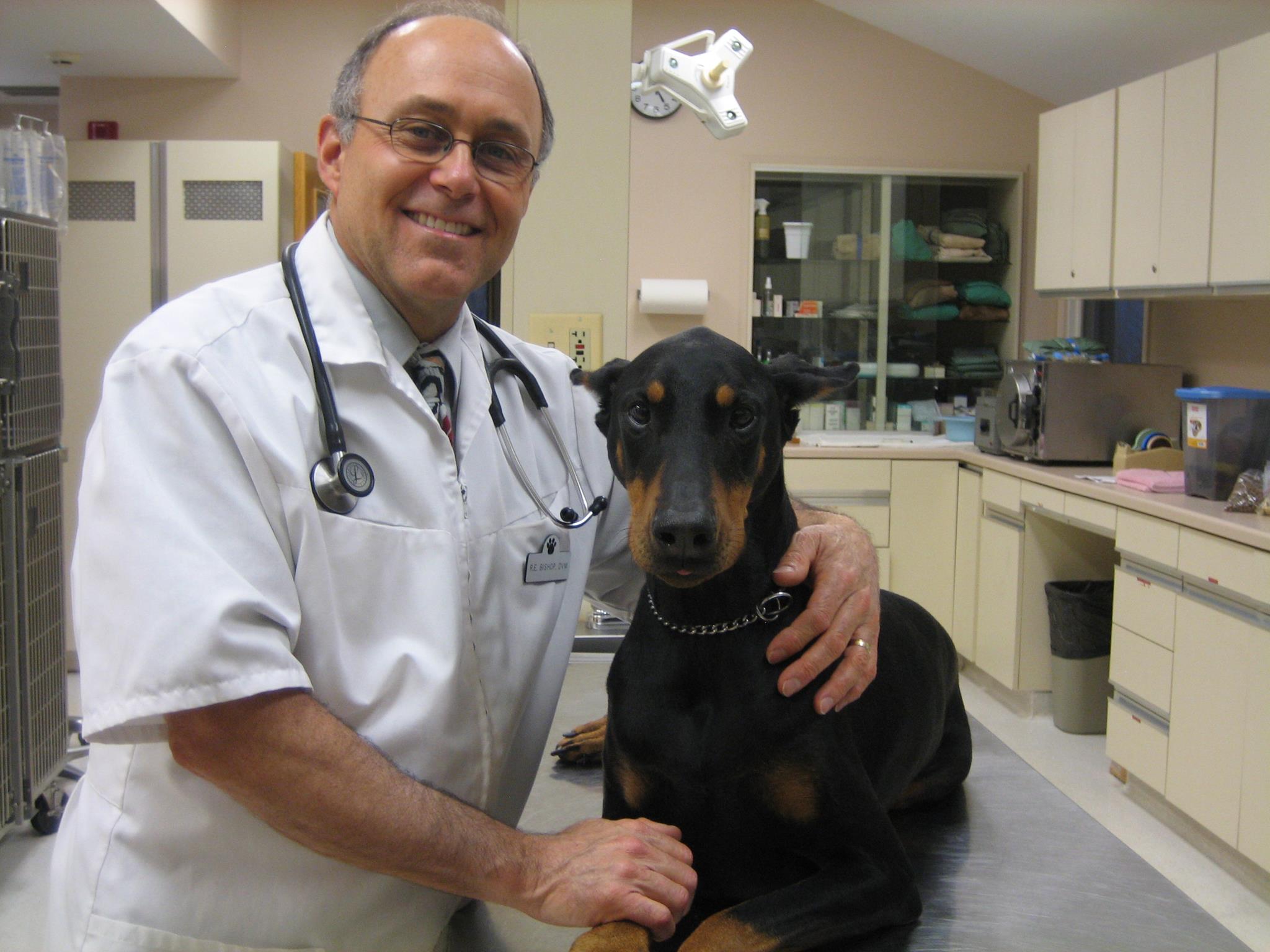Dog Allergy Care Advice From Veterinarians
Many pet owners have experienced a dog that scratches themselves here and there. Still, when it crosses over into incessant itching that causes skin issues, we realize that our dogs may suffer from allergies. The last thing you want to see as a dog lover is your fur friend suffering, so you’ve likely turned to the internet for answers. At GeniusVets, we believe that pet care information should come from veterinarians and not from (albeit well-meaning!) keyboard warriors. That’s why we’ve taken frequently asked questions on dog allergies, sent these questions to renowned veterinarians across the U.S., and compiled their replies to get you helpful information that you can trust.
While we've sourced all of the dog allergies information and recommendations below directly from leading veterinarians across the country, please make sure to seek out the advice of your own veterinarian or find a trusted vet near you using the GeniusVets Directory.
How common are dog allergies?
Dog allergies are more common than many people realize. In fact, many veterinarians will tell you that it’s a large majority of what they treat in their practices. There's a whole slew of different things that dogs can be allergic to. They may present with all sorts of different symptoms, but they're ubiquitous, and probably even more so if you include things like fleas.
What are some common dog allergies?
One of the most significant dog allergies is food allergies. And most commonly, that's the protein source of the food - chicken, beef, or pork. The next is being allergic to ectoparasites or parasites that can live on the pet, so fleas or ticks, or even being allergic to mosquito bites and other things like that. And then the last kind of dog allergy falls under what we call atopy, or environmental allergens. Perhaps it's the grass outside or pollen from the tree or flowers in the yard, or maybe even the dust in your carpet, mold behind the walls, or other things that can trigger allergies in dogs. While these inhalant allergies can occur, dogs mostly experience contact allergies.
How do allergies impact the health and wellbeing of my dog?
The most significant thing that owners notice is the itching, and the affected dog is often up all night because they are incredibly itchy. There are other signs of dog allergies, however.
Some other ways dogs can exhibit allergies besides itching are:
- Ear infections, so the dog may be shaking their head
- Hives, welts, or red raised areas
- Hair loss due to the dog chewing their fur out, which can cause a secondary skin infection
- They may have some lesions or red bumps that are oozing
There are so many different ways that allergies present. And the most significant thing is trying to figure out what's causing them and then managing them to keep the pet comfortable because that saves your sanity in check as the dog owner. As you can imagine, constant itching and scratching is uncomfortable and can be downright painful for your dog, so it’s a quality of life issue when it comes down to it.
Could I diagnose my dog's allergies at home?
Sometimes yes, sometimes no. Let's say you gave your dog a new brand of treats, and they have some vomiting or diarrhea, or they broke out with hives on their skin, then that's probably a good indicator that something in that new bag of treats caused an allergic reaction in your pet. Of course, things like bee stings would fall under the allergic reaction category. But sometimes, there are some trickier things to diagnose, and those are better off being diagnosed at your vet's office. Even as veterinarians, we sometimes have a hard time pinpointing exactly what the dog is allergic to. And in more recent times, we have drug modalities and injectables, what we call biologicals, that we use that don't require pinpoint therapy. If you take an antihistamine tablet, you don't necessarily know what you're allergic to, but you take the antihistamine, and it blocks the histamine and helps you.
But as far as figuring out what the dog is allergic to, that can sometimes be a bit of a challenge. Figuring out the allergy may require a food elimination diet, as it is the only way we figure out what the dog's allergic to food-wise. And as far as actual allergens, there are blood tests, saliva tests, and the most common one is testing the skin with allergens made up especially for that purpose.
How will a vet diagnose allergies in my dog?
There is some dog allergy testing available, but many times it's a diagnosis of exclusion. Your veterinarian will make sure that there's no evidence of fleas on your pet or looking for the cause of the ear infection. Or did we change food recently? Are we moving into a new season? Did we move from winter to spring? Because sometimes, that can trigger allergies in dogs too. It's kind of like being a detective and trying to put together all of the puzzle pieces, and that's generally what we tend to do. And then, if more diagnostics are needed, your vet can recommend those, and there are several different things that we can do on that front. And even if your veterinarian isn’t quite sure what the allergy is, they can still administer medications like Apoquel or other biologicals or antihistamines to give your dog some relief.
Your veterinarian will also be looking for things like bacteria or yeast. Many dogs have yeast infections on their nail beds that can cause problems and itchiness. And as the owner, you need to understand that this is a process. It can take a while, and you want a veterinarian who has the energy, the time, and the commitment to seeing the allergy situation through. It can sometimes take several months to get things under control.
How are dog allergies treated using anti-inflammatory therapy?
Many veterinarians' go-to anti-inflammatory therapy is omega-3 fatty acids. And the nice thing about omega-3 fatty acids is they are over-the-counter, natural anti-inflammatories for the pet. These allergic responses cause some sort of inflammation, either in the skin or the ears. If it's a food allergy, sometimes it's in the gastrointestinal tract. And your vet will want to get that inflammation under control because, if you think about skin, it's kind of like bricks and mortar, so it's a nice solid wall when it's intact. But what that inflammation does is it crumbles out the bricks and mortar, and that's what leads to secondary bacterial infections or secondary fungal infections.
Steroid usage has become a much less common thing. Many decades ago, the dog would come in for an allergy shot, and it was a long-acting steroid. Unfortunately, these steroids had some profound physiological effects on the dog, causing excessive urination and suppression of the adrenal overall immune system. Today’s dog allergy drugs, such as Apoquel and Cytopoint, act by blocking other steps in the process. And while these medications stop the itch, it’s also necessary to treat the underlying infections.
How is shampoo therapy used for dog allergies?
Shampoo therapy is extremely valuable because, if the allergen that's tricking your dog is grass, pollen, spores, mold, low levels of bacteria and yeast, or dust getting on their coat, the shampoo therapy gets those allergens off of your pet to hopefully stop the triggering response. Many veterinarians have all-purpose, hypoallergenic shampoos with ceramides in them that restore that mortar in the brick and mortar that makes up the skin. Some shampoos have specific medications in them, too, whether that’s antimicrobials, antifungals, ceramides, or even hydrocortisone. Things like that that can help control a bit of what's going on on your dog's skin. These shampoos remove the allergens, reduce bacteria, reduce fungal components that cause a lot of itch, and rehydrate the skin, making it feel much better.
Another benefit is in regards to the fact that veterinarians are under the watchful eye of the FDA, and they don't like vets using a lot of antibiotics. So resorting to shampoo therapy and not oral antibiotic therapy, which could put some more resistant strains of bacteria out in our environment, is much better in the eyes of the FDA.
What is hyposensitization or desensitization therapy for dog allergies?
Desensitization is a process by which your veterinarian exposes the patient, either by injection or sublingual therapies (under-the-tongue therapies), to small amounts of the things they're allergic to. And what happens is the body creates things inside of it that counteract the reactive agents that trigger the allergy. So your vet will give small and increasingly larger injections to gain some tolerance on the patient’s part. Desensitization builds immunity against the thing that the dog is allergic to.
So if you're allergic to cats and you're a dog, you would give cat allergen by injection or sublingually. If you've got a house dust mites allergy, you would inject small amounts of that, gradually larger quantities, and build a tolerance in the body. You build immunity, much like what is done with the vaccination for COVID or rabies or anything else. It’s a process of building immunity.
What are dog allergy shots?
There's a treatment called hyposensitization, which is where your vet will draw blood from your dog and determine what things they are allergic to. They send the blood from hyposensitization shots off to a company that assesses it, and the people at the company may say, "Hey, there are four or five things, mold or a certain kind of pine tree, or a certain kind of pollen that your dog is allergic to." And then, your veterinarian will form a solution that allows us to give your dog small amounts of that to decrease how they react to those particular antigens.
So, hyposensitization has a role in treating dogs with allergies, but now that there are so many other excellent medications, there are combinations of therapy. However, all of this requires that you have some patience and that you grasp that this is not something that your vet can get rid of immediately. It's a process. And dog allergies aren’t necessarily cured, but, instead, they are managed.
The AVMA also addresses the apparent increase in itchy pets and what we can do to treat them. If you have any further questions about dog allergies or you want to get your precious pet in for an appointment, please reach out to your vet. Don’t have one? We can help you find a local veterinarian!







